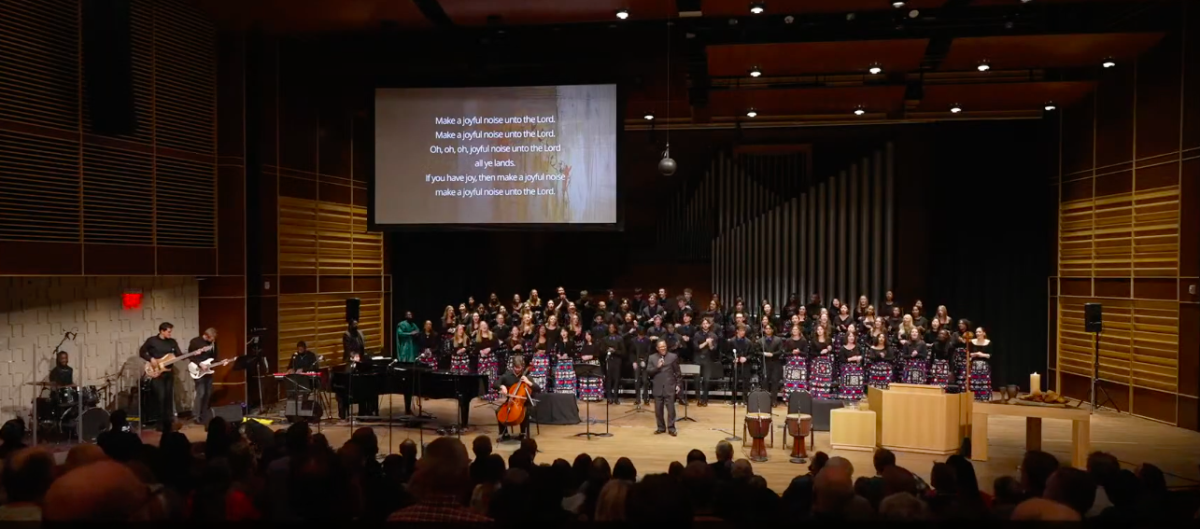I’m sure you’re familiar with the film scene I’m about to describe: after overcoming insurmountable odds and all manner of harrowing experiences that have separated our protagonist from loved ones, he or she is at long last reunited with friends and family and there is feasting and much rejoicing. Think “Castaway,” “127 Hours” or “The Martian.”
The central conflict of “Room” is based on this premise, but the reunion scene occurs halfway through the movie, and the events that follow, I would argue, are much more important to the film’s poignancy.
Director Lenny Abrahamson’s film “Room” is about a young boy named Jack and his mother Joy who are held hostage in a shed by a man who kidnapped Joy when she was a teenager. Born in captivity, Jack, who celebrates his fifth birthday at the start of the film, has never experienced the world outside the shed. To Jack, Room, as he and his mother call their small and shabby living space, is the only reality that exists.
Room has a TV that Jack watches rapturously and anything that exists outside of his environment exists only in the reality of TV. Jack’s only real glimpse of the outside world comes from what he sees through the skylight in the shed’s roof.
However, Jack’s entire reality is challenged after he and his mother escape from Room and Jack experiences the multifaceted world that he never knew existed, but that everyone else around him takes for granted.
“Room” gives us a rare glimpse of life on the other side of a traumatic experience, the long road to psychological and emotional recovery once the reunion scene with Joy’s parents is over, the joyous tears have dried up and the hugs and kisses have ceased.
And it’s not all sunshine and roses for Jack and his mother after this momentous reuniting either. Jack and his mother experience anger, doubt and confusion as to how to adopt this unfamiliar world as their new reality. At times, the two seem to almost long for the relative safety and familiarity that Room offered them.
But as Jack grows accustomed to his new world and begins to thrive and make friends, his mother realizes that she needs to adapt as well and piece her life back together in order to remain the strong presence that her developing son needs.
“Room” is a film that is entirely viewed through the eyes of a child because Joy is still internally a child herself after having had her young adult life snatched away by her kidnapper.
The film thrives thanks to its exceptional screenplay and the performances by newcomer Jacob Tremblay, who plays Jack, and Brie Larson, who plays Joy. Both actors give emotionally charged and believable performances that hit just the right notes at just the right moments.
Watching these characters grow and develop was just as emotionally turbulent an experience for me as it was for them. I felt like what I was seeing was a realistic and authentic portrayal of how people would actually function psychologically after surviving such a traumatic journey. I feel confident going so far as to say that the character development and narrative trajectory after Jack and his mother’s escape would please most psychologists versed in the field of human behavior.
“Room” is likely to be a strong contender for Best Picture at the Oscars this year and it deserves to be. It is a film that promises hope in the face of seemingly insurmountable duress and reiterates the primal bond between mother and child that resolutely defies anything that attempts to wrench it asunder.








